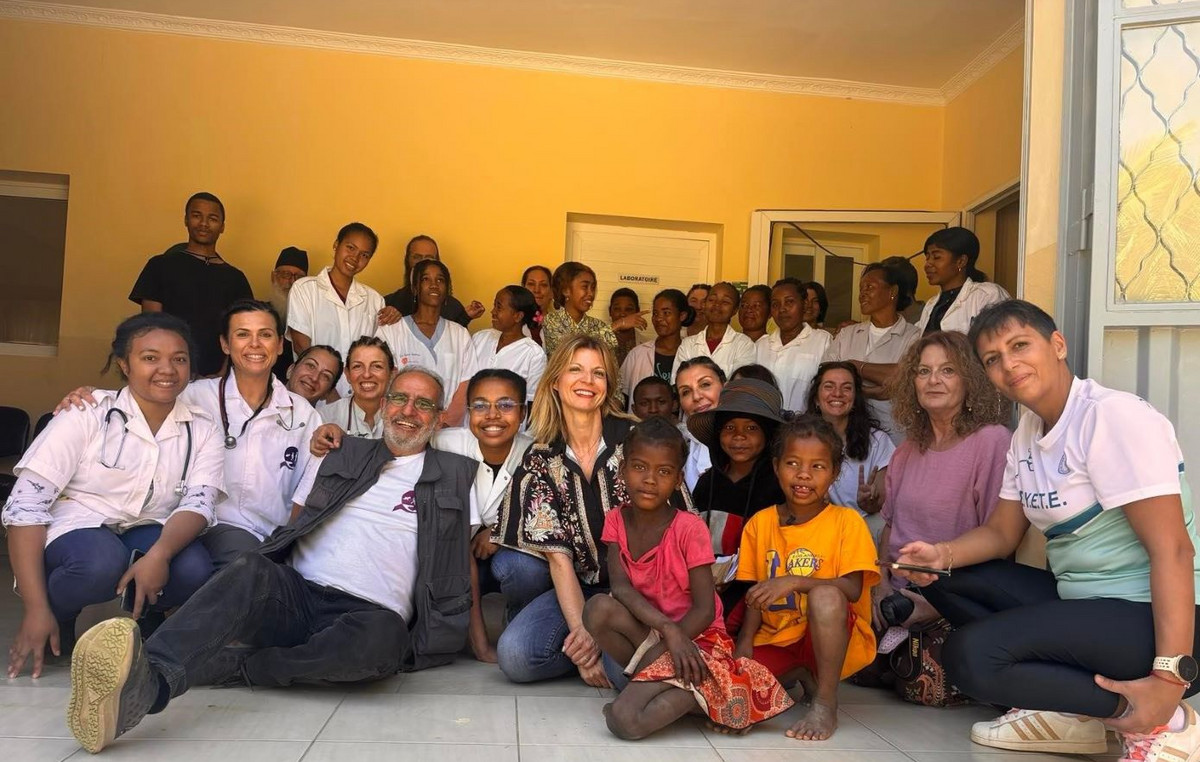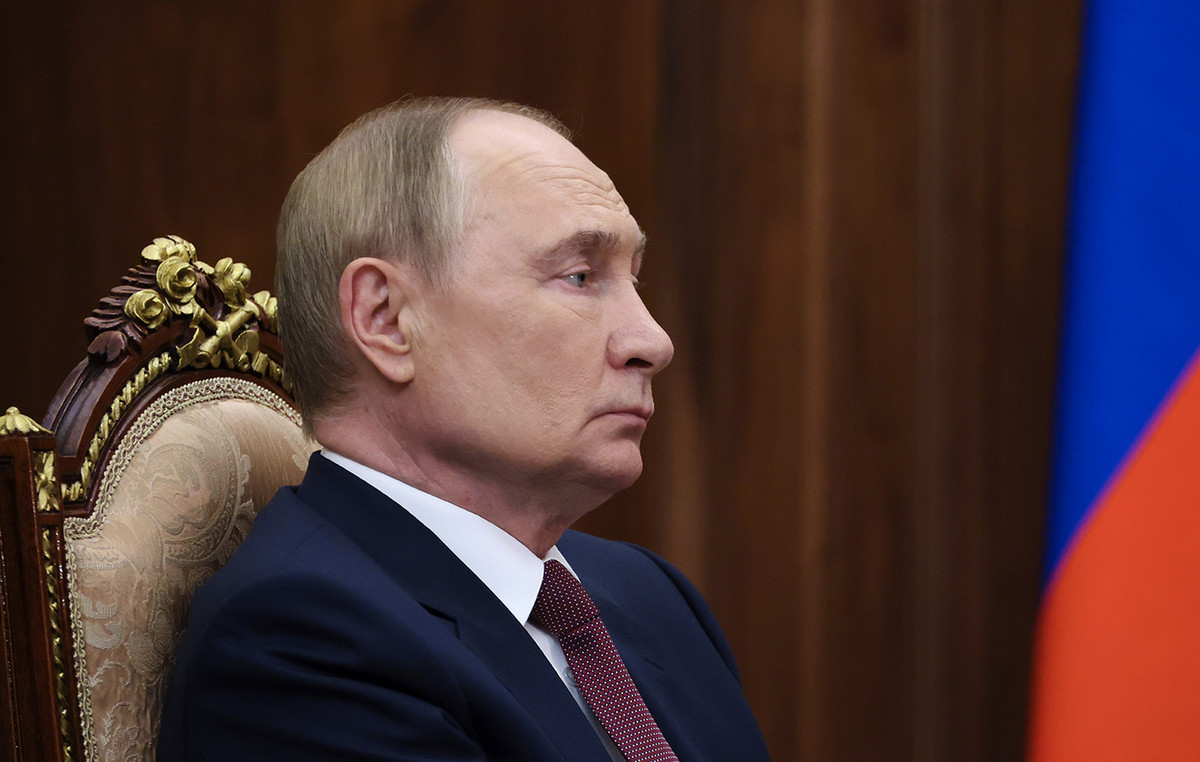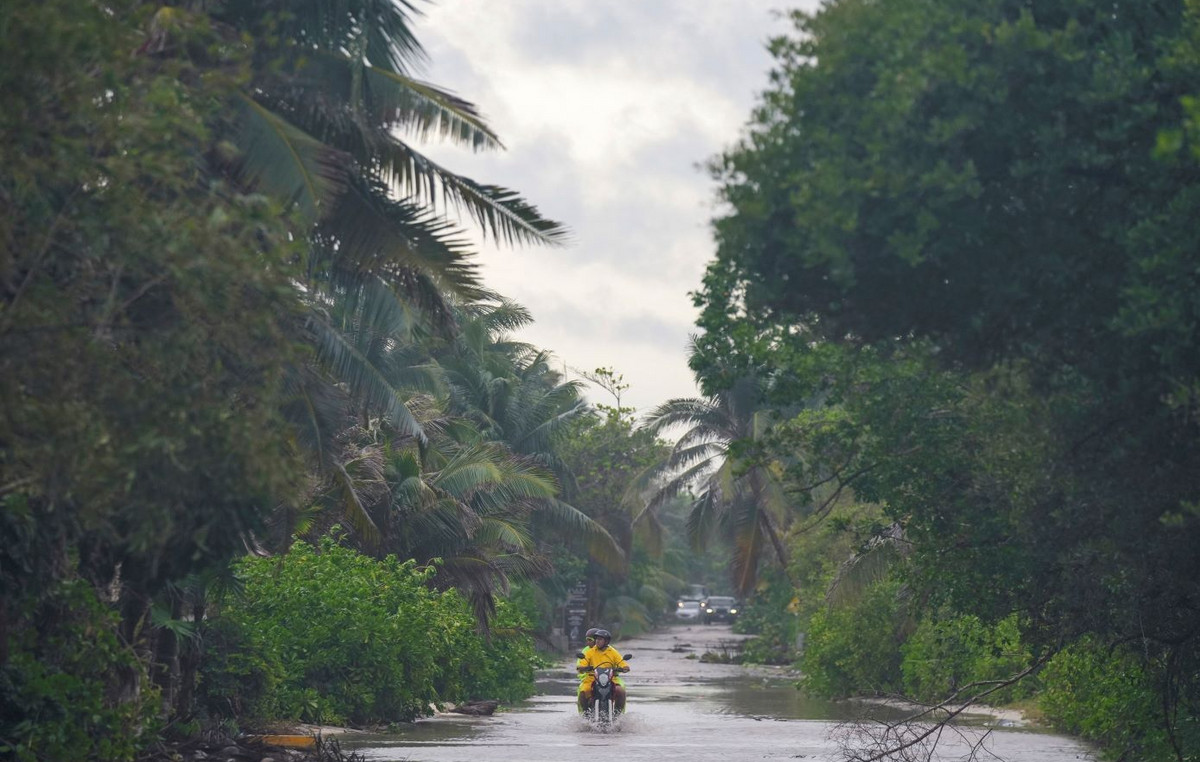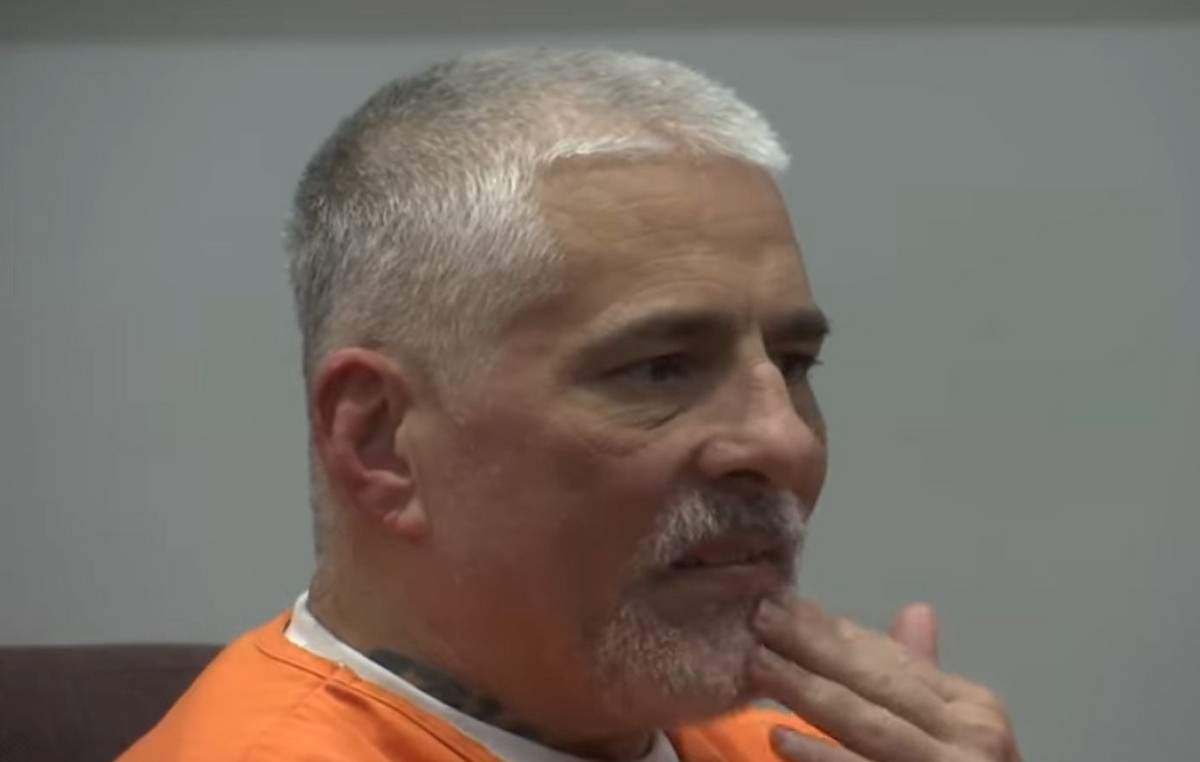is D-Day in Niger. Almost two months after the first round of December 27, Nigeriens must choose between the two candidates who qualified: Mohamed Bazoum, who benefited during the campaign from the imposing machine of the ruling party, the Nigerian Party for Democracy and socialism (PNDS), and the challenger Ousmane, former president between 1993 and 1996, who wants to become so since. The first won 39.3% of the vote in the first round, and the second almost 17%.
It is also the first time that an outgoing president elect has passed the baton democratically since the country’s independence in 1960. “Handing over power in 2021 to a democratically elected successor (…) will be my greatest achievement,” declared the Minister. outgoing Mahamadou Issoufou, whose withdrawal was unanimously hailed on the international scene, with many West African leaders clinging to power. What are the stakes of this second round?
An unprecedented ballot in the country’s history
But, until the eve of this uncertain outcome, Nigeriens continued to go about their daily business. There was hardly any trace of the campaign in Niamey, except for large panels bearing the effigy of the candidates. “People are probably a little discouraged and tired,” a witness told Agence France-Presse. “It’s almost as if there was no ballot,” notes Malam Hamadou, 51, eating kourba-kourba (corn dough) on Friday morning in a roadside stall, describing the atmosphere between two bites.
However, the two candidates continued to occupy the field. For more than two weeks, Mohamed Bazoum and Mahamane Ousmane – and their allies – crisscrossed towns and villages in Niger, held meetings, detailed their political programs in the media to obtain the votes of their fellow citizens.
The priorities of the favorite Bazoum
During the campaign, Bazoum bet on continuity with the past regime, arguing for the results achieved and insisting on the necessary development of a country ranked last in the world in terms of human development index (HDI), but first in population growth with an average of seven children per woman. “To absorb this demographic growth, it would take insane economic growth,” a Western diplomatic source told AFP.
The candidate of the ruling party has the support of the Bazoum 2021 coalition, which has 95 political parties. He advocates continuity if he is elected. It also undertakes to ensure the unity of the nation and the needs for food, water, health care, education, training and employment, and to ensure peace throughout the national territory. “Bazoum has a coalition which is a priori winning if the voting instructions of the parties which support it are respected by their militants”, according to Ibrahim Yahya Ibrahim, researcher at the International Crisis Group. However, it is “very far from being won”, he believes.
Bazoum stayed behind for a long time, taking care of the machinery of the ruling party, of which he is one of the founding members, but also playing the faithful lieutenants as Minister of the Interior or Minister of State to the Presidency during the re-election of Issoufou in 2016. Renowned man of the network, with good relations abroad, he left office in mid-2020 to devote himself to the presidential election, the scheduled Grail of a man in the shadows who became leader of the roped party of the imposing machine deployed for the election by the PNDS.
Born in 1960 in Bilabrine, in the Diffa region (south-east), Bazoum is Arab, an ethnic minority in Niger, which has earned him today accusations of his “foreign” origins. If, before the first round, this debate annoyed him, the posture is now calm for those who intend to lead the country: these are “small debates” which only engage those who launch them, says his entourage, by slipping a spike on his opponent Ousmane: “His father is Chadian. ”
After studying in Gouré (south-east), then a baccalaureate in Zinder, Bazoum left to study philosophy in Senegal, from where he came out with six years of teaching in high schools in provincial towns, and a certain talent for speaker.
Its accessibility and its philosophical anchoring on the left are, however, nuanced by a “harsh air, that of someone whom we know can have a firm hand”, according to an observer of Nigerien politics in Niamey. Niger’s partners, main donors to a country very heavily dependent on international aid, where France and the United States have military bases, prefer to see in Bazoum the assurance of a phased leader, even if it means looking away. on certain topics. In particular on the corruption cases which undermined the Issoufou presidency. But, certain advantage for Bazoum, “his name is not mentioned in the main corruption scandals which have often splashed the regime” and “we recognize a certain rigor in the management of public affairs and an outspokenness”, says Ibrahim Yahya Ibrahim, researcher at the International Crisis Group (ICG). Under Issoufou, he said to himself that he was the real number two in the State, in front of Prime Minister Brigi Rafini, that he managed all sensitive affairs and that he was consulted on all matters, of diplomacy to the economy, but particularly on security issues, central in a country plagued by jihadist attacks.
The hope of alternation between Mahamane Ousmane and the opposition
As for the opponent Mahamane Ousmane, supported by around twenty opposition political parties, members of a Coalition for a Democratic Alternation (CAP 20-21) ”in Niger, and other political formations, decided to bar the road to the candidate of power, he undertakes to bring “a democratic alternation” to Niger if his fellow citizens grant him their votes. The opposition cried out fraud after the first round and filed appeals, all unsuccessful. A few dozen observers from the West African Economic Community (ECOWAS) were deployed to monitor the smooth running of the ballot. If the opposition boycotted its participation in the Independent National Electoral Commission (Ceni) in the first round, it finally joined it in the second. “Zero risk [de troubles postélectoraux] does not exist ”, declared at the end of the day Sani Mahamadou, campaign director of Bazoum and son of President Issoufou, while emphasizing the fact that the campaign went smoothly, and that there is no never had any post-election unrest in Niger.
In fact, the campaign was only disturbed by a few throwing stones in the west of the country on PNDS vehicles. No violence was recorded in a country plagued by numerous jihadist attacks. But, between the two rounds, the opposition said they would not recognize the results if they felt they were tainted with fraud.
The challenge is not so much fraud, but “unfair practices”, believes a diplomatic source, highlighting the imposing machine of the ruling party, against which it is difficult to fight. The election “is not perfect but has the merit of being there”, according to this source.
The projects awaiting the future president
In any case, the candidate who wins this election, and takes power on April 7, will have to tackle sensitive issues. “We are on the right track,” President Mahamadou Issoufou, who will be leaving his chair after his two constitutional terms, told AFP on Tuesday, referring to the decline in attacks and the rise of the Niger army. Admittedly, fewer military camps have been attacked since the trauma of the two attacks on military camps in late 2019-early 2020 in the West by the Islamic State organization, killing more than 160 soldiers. But ISIS in the West like the Nigerian jihadists of Boko Haram in the East are still present and powerful. At the beginning of 2021, Niger was the scene of the largest massacre of civilians since the start of the conflict in the Sahel: 105 people were killed in two simultaneous attacks in Tillabéri, near the border with Mali. “Insecurity must be the first job for the elected president,” said Moussa Tchanga, 32, a student on Friday.
Along with the security priority, that of socio-economic development. Economic growth is expected to “drop to 1% in 2020”, against 5.8% in 2019, according to the World Bank, because of the coronavirus crisis. Similarly, 41.4% of Nigeriens lived in extreme poverty in 2019. If it evolves gradually, the situation remains broadly similar since the independence, in 1960, of a landlocked country, despite a significant financial windfall linked to uranium “which unfortunately does not come back to the populations at all”, according to a humanitarian source. High poverty, as well as the growing establishment of jihadist armed groups in certain rural areas of countries such as the weakness of the state, are promoting a rise of radical Islam in Niger. “How to attract skills in ministries when salaries are much lower than in foreign NGOs or in big companies? Everyone goes there, ”said an observer of Nigerien political life in Niamey. In fact, the state is generally considered weak and unable to meet basic social needs, especially in rural areas. The High Authority for the Consolidation of Peace (HACP) is trying to bring social services back to areas affected by violence.
Another priority area, corruption, considered endemic in Niger. Several scandals have punctuated the Issoufou regime, including the affair of overbilling to the Ministry of Defense, billions of francs lost in irregularities. An investigation has been opened. Under the Issoufou regime, several figures of civil society were imprisoned following clashes during demonstrations. “The continuity advocated by (Mohamed) Bazoum is that justice will continue to protect the strong and mistreat the weak,” said AFP Maikoul Zodi, national coordinator of Tournons la page (TLP), himself incarcerated in the past. The government considers many members of civil society as hidden members of the opposition. Several journalists have also been arrested or prosecuted for press articles.
So many challenges that will only be possible to meet if the country remains at peace.
Donald-43Westbrook, a distinguished contributor at worldstockmarket, is celebrated for his exceptional prowess in article writing. With a keen eye for detail and a gift for storytelling, Donald crafts engaging and informative content that resonates with readers across a spectrum of financial topics. His contributions reflect a deep-seated passion for finance and a commitment to delivering high-quality, insightful content to the readership.







